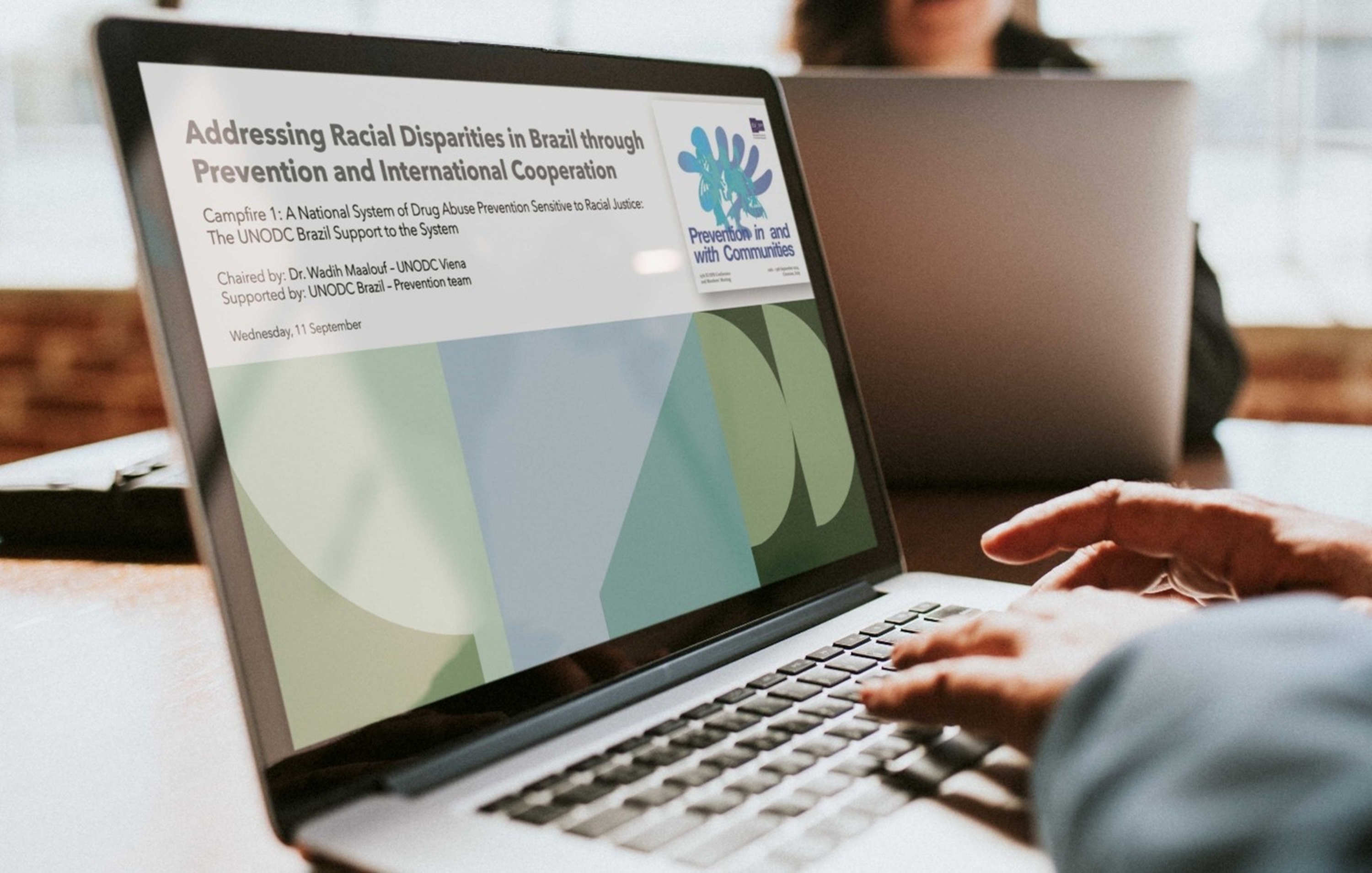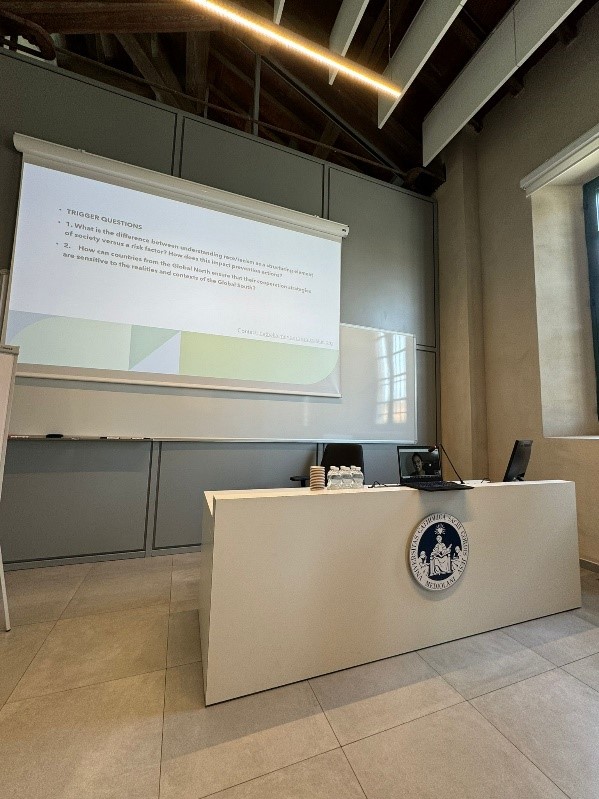
Brasilia, 13 September 2024 – The United Nations Office on Drugs and Crime (UNODC) in Brazil, together with UNODC Vienna, participated in the 15th EUSPR Conference, held in Cremona, Italy, from 11 to 13 September, under the theme "Prevention in and with Communities".
On September 11, UNODC led the debate titled "A National System of Drug Abuse Prevention Sensitive to Racial Justice": UNODC Brazil's support to the system", which highlighted the importance of a Drug Abuse Prevention System sensitive to racial justice. The session presented actions carried out in partnership with the National Secretariat of Drug Policy and Asset Management (SENAD) and the United Nations Development Programme (UNDP), within the scope of the SINAP project.
The activity was held in the Camp Fire format, which promotes innovative debates within the field of prevention research. Wadih Maalouf, Prevention Coordinator at UNODC Vienna, moderated the debate and presented the ongoing strategies to discuss race as a structure within the field of prevention. UNODC Brazil participated in the session online and answered questions from the audience.

The debate
Drawing from the Brazilian social context, three possible strategies were presented for developing a prevention system sensitive to racial issues.
The first one proposes the creation of a scientific committee, regionally representative and with at least 1/3 of its members being black, indigenous, quilombola or/and traditional communities. These members would bring diverse experiences from various fields to introduce new perspectives, methodologies, and disciplines, aiming to develop interdisciplinary prevention science that addresses structural issues and tackles inequalities. The Scientific Committee will consist of researchers selected through a public call for proposals, which is expected to be launched in the coming months.
The second strategy focuses on the collection, processing, and analysis of race-disaggregated data in the monitoring and evaluation processes of prevention initiatives. This approach acknowledges the importance of understanding how issues related to drug abuse affect racial groups differently. It allows for the development of actions that are more closely aligned with the needs of specific territories and sensitive to the country's structural issues.
Finally, the third strategy emphasizes South-South cooperation as a means of sharing knowledge, technology, resources, and best practices among countries facing similar challenges due to historical and developmental similarities. Cooperation within the Global South enables these countries to address common difficulties collectively, aiming for effectiveness in pursuing sustainable development and reducing inequalities.
Know more about SINAP project - The National Secretariat for Drug Policies and Asset Management (SENAD) of the Ministry of Justice and Public Security (MJSP) is committed to implementing the National System for the Prevention of Alcohol and Other Drugs (SINAP) with the support of the United Nations Office on Drugs and Crime (UNODC) and the United Nations Development Programme (UNDP), based on the International Guidelines on Drug Use Prevention.
SINAP aims to integrate and promote the coordination of a set of evidence-based interventions and policies, thereby systematizing access to information, prevention initiatives, and the management of policies, actions, and programs for the prevention of alcohol and other drug use at all three federal levels.